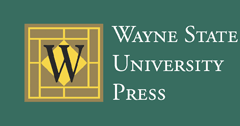Abstract
Spozhmai Zaryab’s short stories have two distinctive characteristics: they are framed by knowing depictions of the process of oral storytelling, and their content incorporates the material of national epics and folktales. These techniques give her works a traditional and familiar narrative form; they also bring a layering that she manipulates for the purposes of pathos and cultural specificity. Zaryab applied these methods only in her anti-war fiction of the 1980s. In doing so, she created alternative readings of national epics and religious legends, thereby giving current political developments both a historical and universal dimension. I argue that Zaryab not only reinterpreted old stories but also sought a suitable vehicle to express the depth of the tragedy created by the war. This in turn resulted in a resonant intertextual meditation on the Afghanistan war itself.
Recommended Citation
Bezhan, Faridullah
(2013)
"Storytelling, Myth, and the Afghanistan Wars in Spozhmai Zaryab’s Anti-war Short Stories,"
Storytelling, Self, Society: Vol. 9:
Iss.
2, Article 2.
Available at:
https://digitalcommons.wayne.edu/storytelling/vol9/iss2/2
